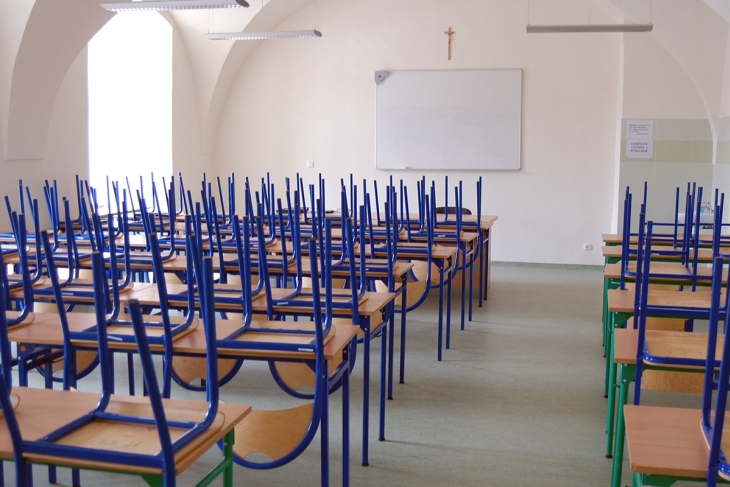The Washington Post reported recently that billions of dollars now flow to religious private schools thanks to the explosive growth of vouchers and “education savings accounts” in red states, with Catholic schools benefitting the most. A Duke Law School professor was quoted complaining that “we are, as a society, underwriting religion.” Media pundit Dave Pell wrote that this was part of a “religious war.”
But that sort of knee-jerk reaction against public subsidies for religious education is unwise. That’s because allowing religious families to choose sectarian schools for their children could very well be a saving grace for our society. And you don’t have to be among the faithful to believe so.
Indeed, as a lapsed Catholic, I understand discomfort over sending taxpayer dollars to religious institutions. We nonbelievers may not love the idea of schools engaging in religious training or taking socially conservative stances. I certainly wouldn’t send my own children to a school that is unwelcoming to gay children or the children of gay parents. Nor would I be happy for my sons to learn that the world is just 6,000 years old or that evolution is just a theory.
But I also understand the distress that many religious families experience when forced to send their kids to public schools that teach ideas and values directly at odds with their own. Indeed, many of today’s education culture wars arise from this clash of values. It’s possible for open-minded Americans to support practices like comprehensive sex education, LGBTQ-themed books for elementary schools, and teaching that gender is just a social construct while also acknowledging that religious conservatives would find all of this deeply problematic.
But here’s the good news: In a system of school choice, we don’t have to fight these culture wars out in the public square. We can let families vote with their feet and send their kids to schools that better align with their own moral values. Just as we already let families opt their children out of sex education, so too can we let them opt their children out of public schools altogether.
This notion of educational pluralism, as Johns Hopkins scholar Ashley Berner has written, is widely prevalent in Europe, Australia, Canada, and much of Asia, demonstrating that it’s no right-wing smoke screen for biblical schooling.
Indeed, there’s good reason to believe that, as more parents gain access to school choice, including the option of sending their children to religious private schools, we will see today’s education culture wars recede. Religious families won’t need to storm school board meetings to denounce the latest progressive obsession that’s being foisted upon their kids because their kids will be happily learning in private schools instead.
No doubt, many Americans have concerns about private school choice that go beyond the question of religious instruction. I share some of these concerns myself. I don’t love the idea of tuition vouchers going to wealthy families that don’t need the help. Nor am I convinced that just because a school is private it is necessarily high quality (though urban Catholic schools can boast a proud history of serving poor children and children of color well—and school choice will help sustain such schools). I prefer programs with quality control mechanisms, especially through regular assessments of student learning. Thankfully, several states with the largest programs have crafted policies that prioritize lower-income families and demand at least some transparency around results.
So the secular argument for private school choice is that, done right, it should help students learn, while also easing our education culture wars. Pluralism, in other words, can bring greater peace. All of us, regardless of our faith, should be able to say “amen” to that.




